Swiss schools abroad are adapting amid competition
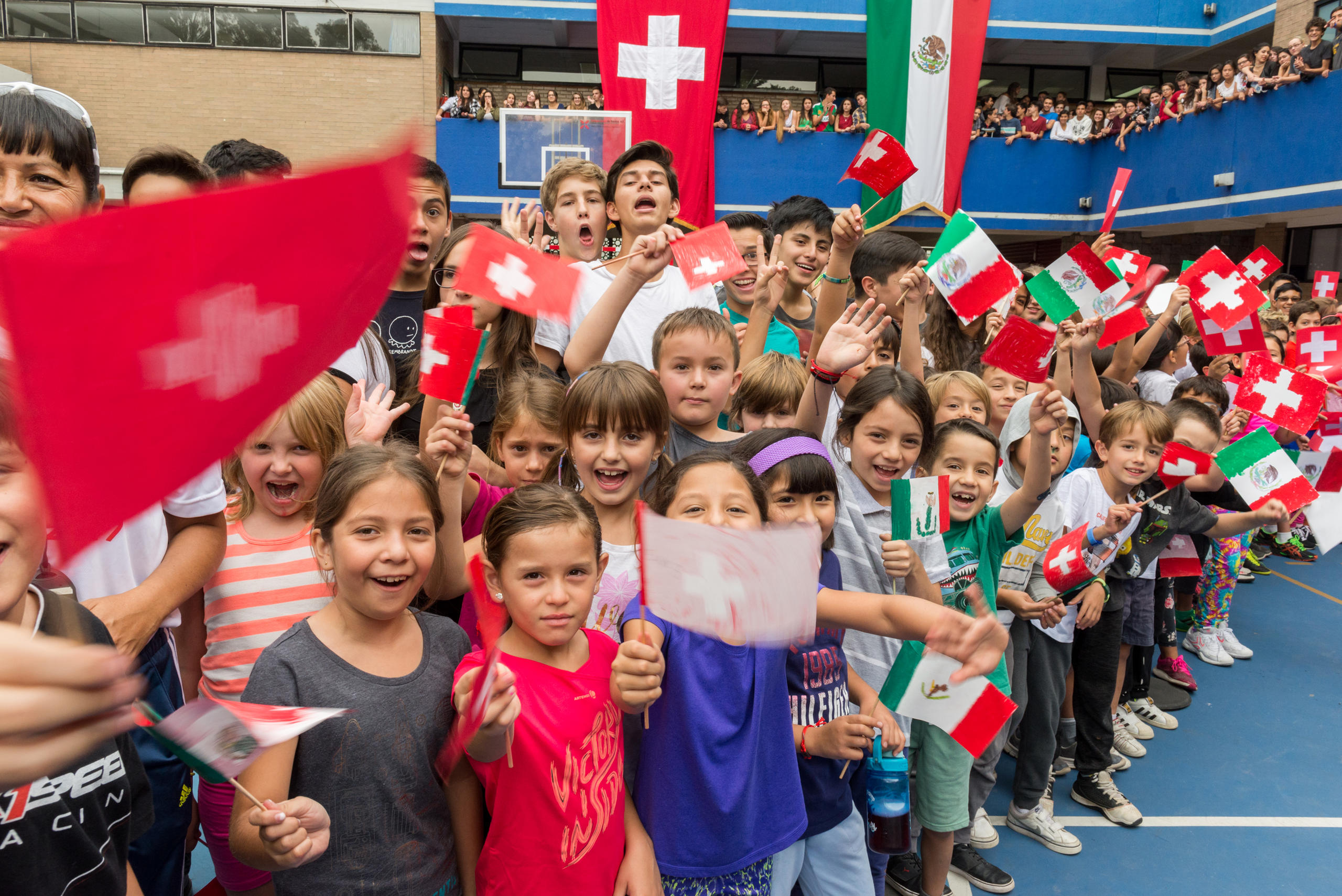
Is there room for Swiss education in the crowded international schools market? Yes, says Barbara Sulzer Smith, director of the Swiss schools abroad body educationsuisse. But she warns that competition is fierce and attracting teachers is tough.
Switzerland has 18 official schoolsExternal link abroad, with around 7,500 pupils total. The target audience: locals and expats. Children with a Swiss passport make up around 20% of the clientele.
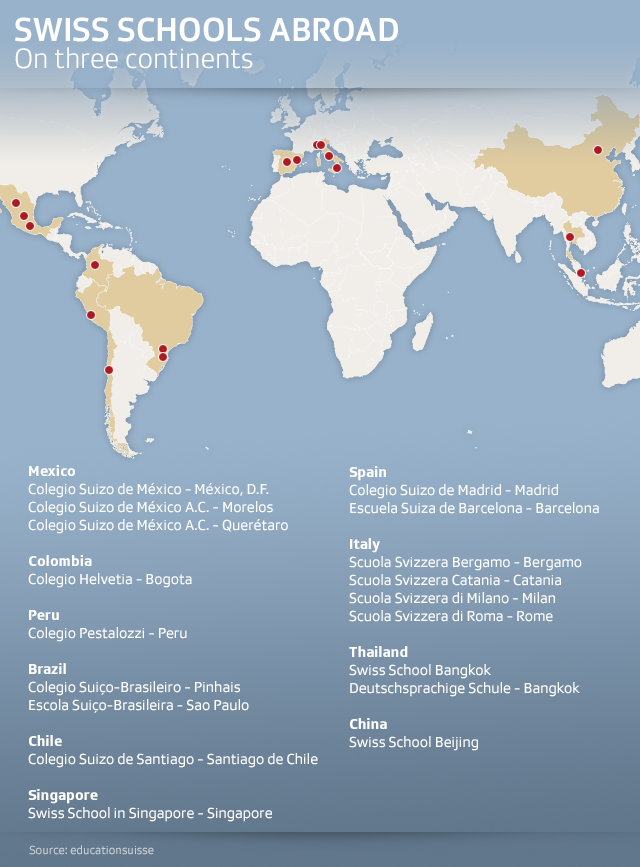
But it is a small network: neighbouring Germany has 140 schools abroadExternal link, and France, 522External link. There is also competition on the ground: in Beijing, site of the newest Swiss school, for example, there are an estimated 50 international schools alone.
+ More on the new Beijing school here
Today, the main purpose of Switzerland’s schools abroad is to act as ambassadors of Swiss culture and education, Sulzer Smith says at an interview at educationsuisseExternal link’s headquarters in Bern.
swissinfo.ch: How are Swiss schools positioned in this highly competitive sector?
B:S:S.: We are well positioned, but competition has increased massively and there are more players coming on to the market. We compete against other private schools and other big education groups and they are very strong, also financially. We are non-profit schools, according to Swiss lawsExternal link. About one-third to one-fourth of the school budget comes from subsidies. The law also says that most of our teachers have to be Swiss as Swiss teachers are responsible for ensuring the quality of a Swiss education. We come from a high-salary country and a big part of a Swiss school’s running costs are the teachers’ salaries.
swissinfo.ch: How viable will this non-profit business model be in future?
B.S.S.: The schools’ structure will stay the same in future: education operates under a federalist system in Switzerland. So each school will continue to be independent and be supported by government subsidies and have pedagogical support from their patron cantonExternal link. But we want to increase the efficiency and effectiveness of the network. For example, we are developing a common training concept for teachers, principals and school boards.

swissinfo.ch: Is it also hard to attract enough Swiss teachers to the schools?
B.S.S.: There are not enough teachers in Switzerland, so the market is very tight and it’s difficult to find teachers who want to go abroad. Very often the salaries are lower than they are in Switzerland. Other foreign schools, like the German or French ones, are highly subsidised and governments send teachers out to the countries. We don’t have that system: all our teachers are either employed by us or locally by the schools and this can cause many problems, for example with social security and tax. We are now trying to develop a system whereby an institution under public law can also send teachers to Swiss schools abroad as public sector employees. With this new system employment conditions will be more attractive.
swissinfo.ch: What happens about schools that use the “Swiss” label but are not official ones (like in Dubai)?
B.S.S.: That’s a big issue. On the other hand, I don’t see it as a huge problem in countries where we don’t have official Swiss schools because we don’t have the resources for Swiss schools all over the world. We are looking at how to bring these schools into our network, maybe as associates, as long as they fulfil certain “Swissness” criteria.
But it’s very important that if these schools use the name “Swiss” there is also “Swissness” inside. In the case of the Swiss International Scientific School in Dubai, the owner of the school and the previous director were Swiss, their curriculum is based on Swiss one, so there is Swissness. But there are also schools where there is no Swissness, they just use the name because it sounds good and that’s the bigger problem. It is difficult to legally do anything. Sometimes the Swiss embassy gets involved and tries to take action against the school.
swissinfo.ch: You also have to learn a Swiss language in your schools, but aren’t people mostly interested in English?
B.S.S.: That’s a big question and a lot of the time, parents say they want more English. All Swiss schools abroad have a local language, plus a Swiss national language. English normally comes as a third language: they quickly learn it to a high level. If you want to go to a Swiss baccalaureate school [university-preparation school] you need French or German as a second Swiss language, so that’s normally our fourth language. Then you have schools like in Barcelona, where you have to take Catalan, or other schools offer to teach additional languages like in Mexico, where they can learn Chinese. So the pupils [can] learn up to five languages. We consider our schools’ multilingualism to be one of our USPs (unique selling points).
Getting a Swiss school off the ground
The initiative for a school must come from a local Swiss group, usually parents (unlike other countries where it is government-sponsored). It’s a long process and takes a lot of money, explains Barbara Sulzer Smith. Beijing was a special case because a Swiss person with experience in the education sector really pushed it through. But as expats no longer stay in one place for a long time, they don’t feel it’s necessary to create a school for their kids, she says.
swissinfo.ch: Is there enough support from home for Swiss schools abroad?
B.S.S.: A Swiss school abroad is often a huge point of reference and that’s why if some cabinet ministers or politicians are going to a country, they often visit a school.
+ Oldest Swiss school in South America gets ministerial visit
We had several anniversaries this year – 70th in Bogota, 100th in Milan and Barcelona – so we are well positioned, but we cannot just stop here and live off our Swiss reputation. Maybe 20-30 years ago, if you were Swiss, this was good and people came. It’s not like that anymore. There is also a lot happening in Switzerland in the education system, like digitalisation or our new curricula (Lehrplan 21). We are bringing these new trends into the schools abroad and this will enable us to offer a modern Swiss education with which we always stay ahead of competition, I believe.
Swiss schools abroad: philosophy
The schools’ profile is based on the Swiss curriculum and the country’s multilingualism, says Barbara Sulzer Smith. They offer a broad overall education both in academic subjects and in social skills like independent learning and self-organisation. Also important are music, handicrafts and sports.
Most schools go from pre-kindergarten to Swiss baccalaureate (qualification that enables university entry, taken age 18-19) or International Baccalaureate level. Beijing (whose status is still provisional but expected to be confirmed) only offers kindergarten and primary level year three. (Locals are also not allowed to attend the Beijing school due to local regulations).

In compliance with the JTI standards
More: SWI swissinfo.ch certified by the Journalism Trust Initiative













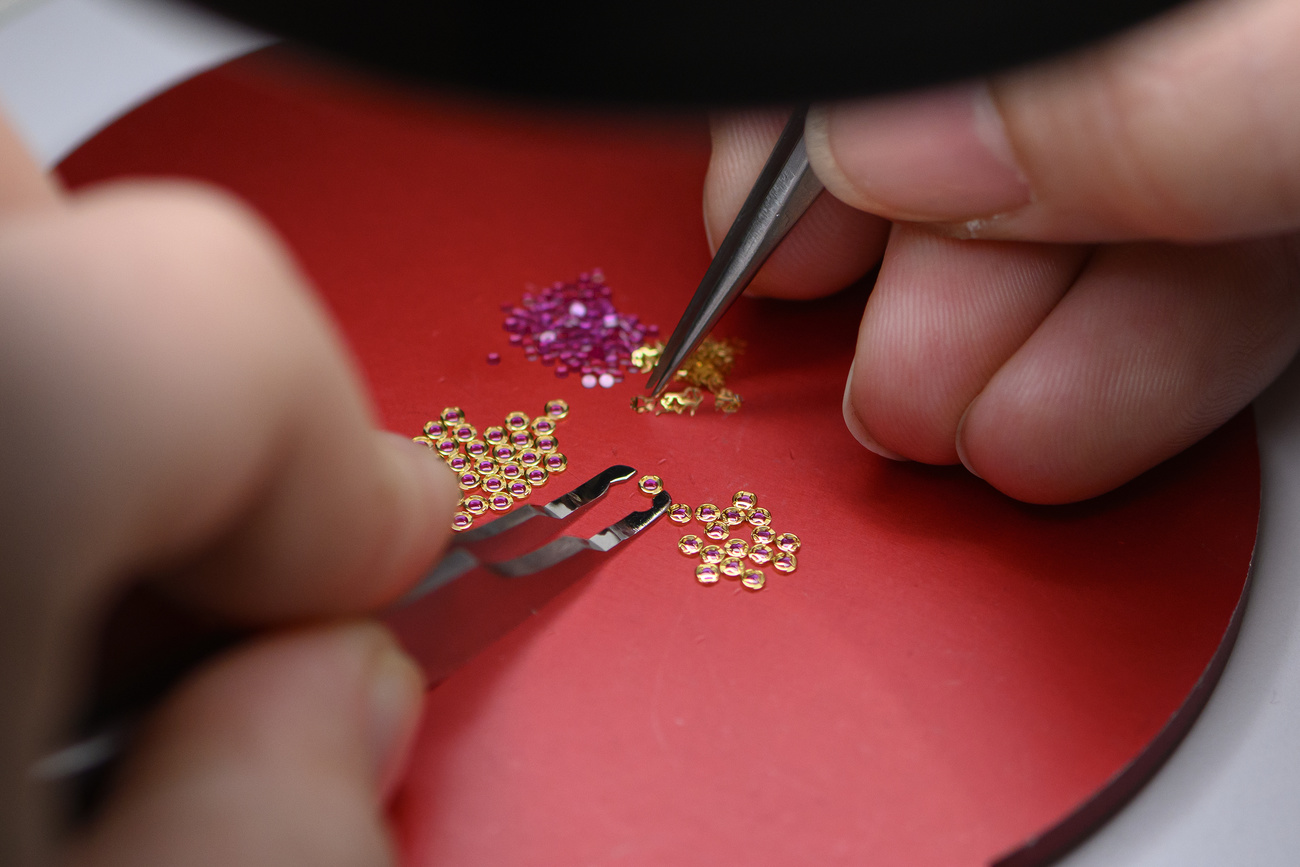

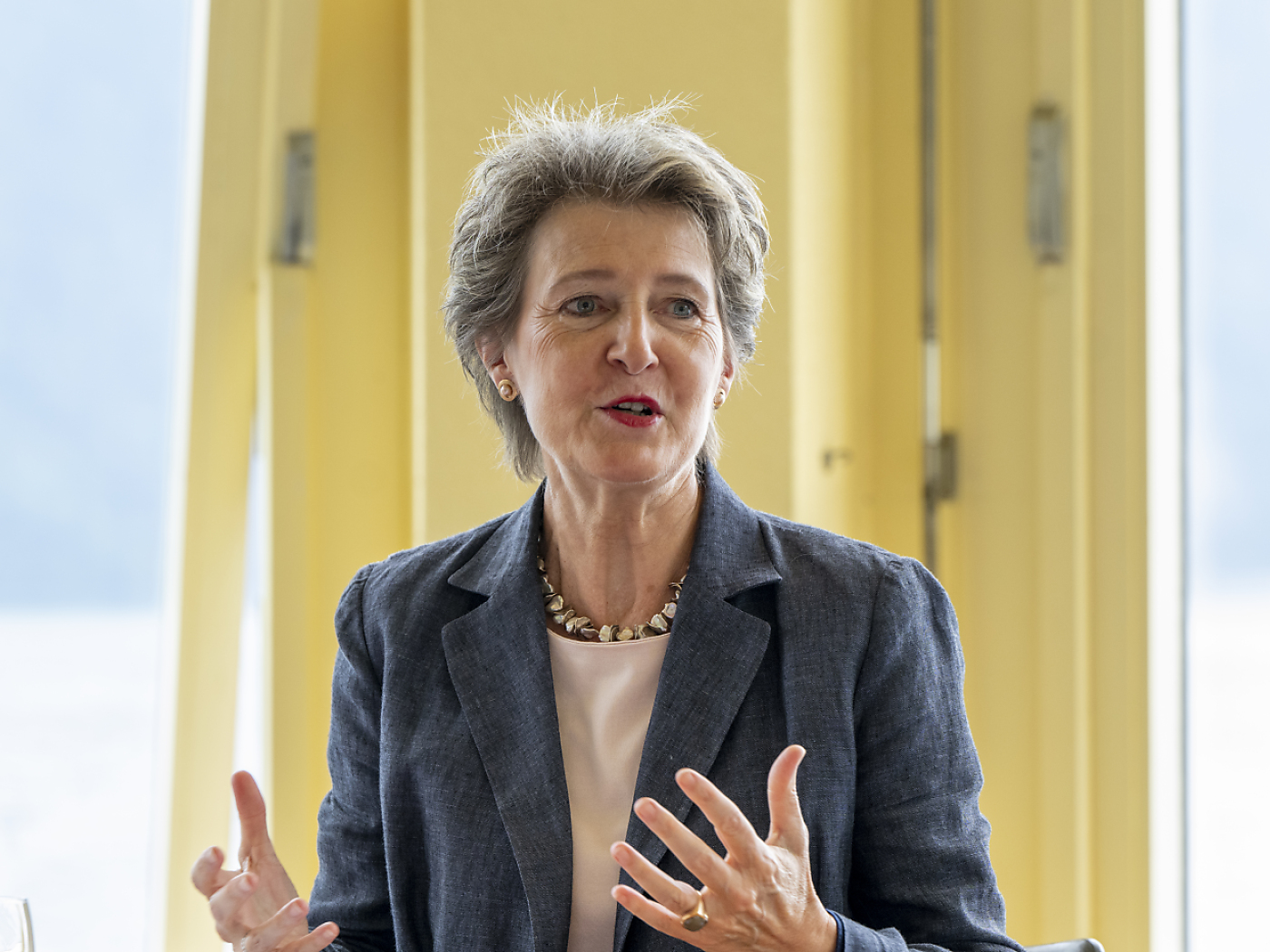
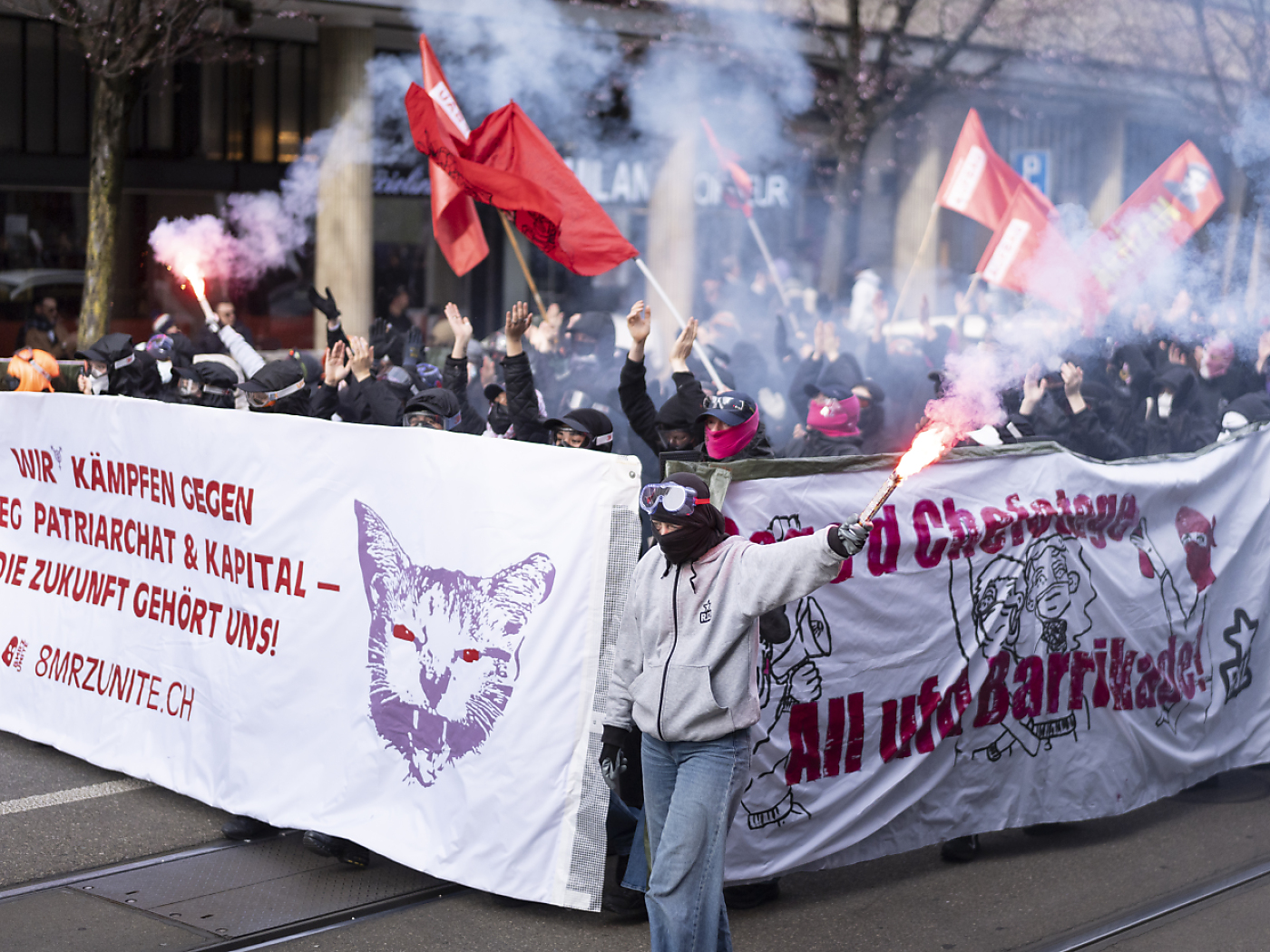


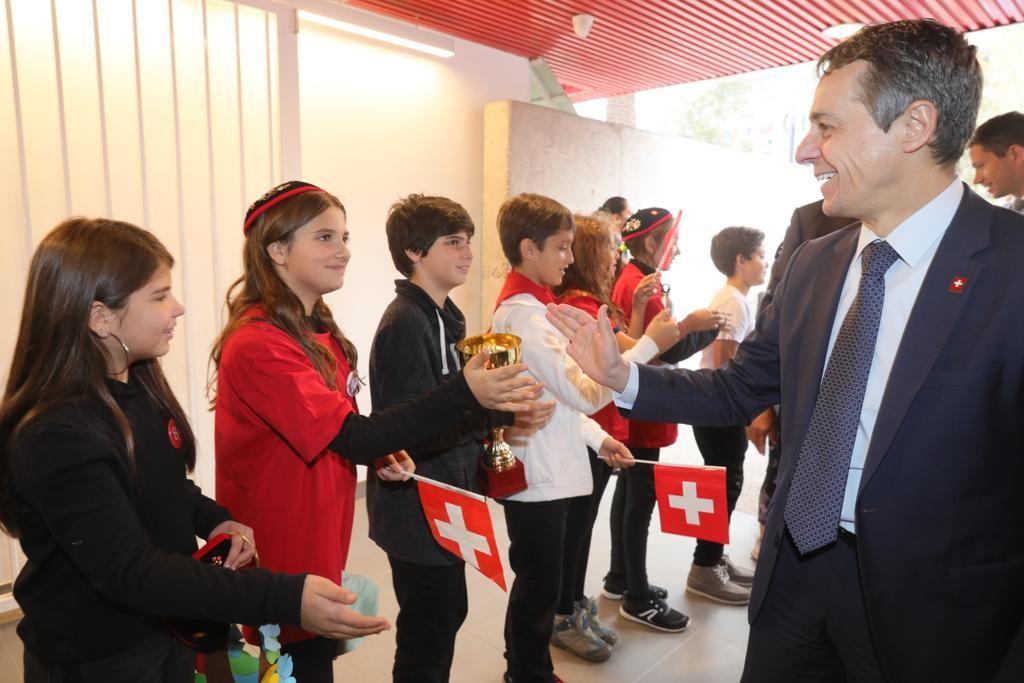



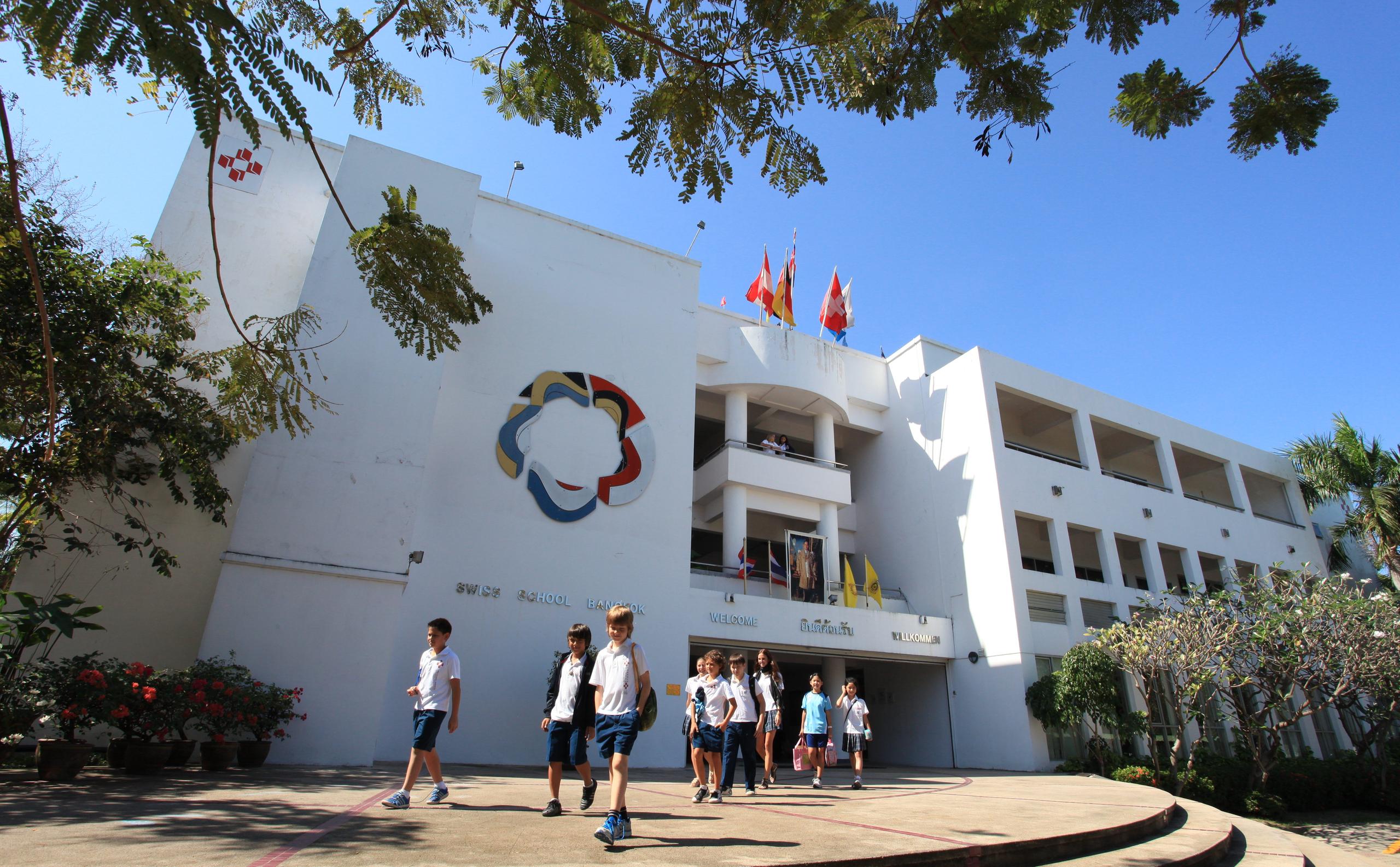

You can find an overview of ongoing debates with our journalists here . Please join us!
If you want to start a conversation about a topic raised in this article or want to report factual errors, email us at english@swissinfo.ch.